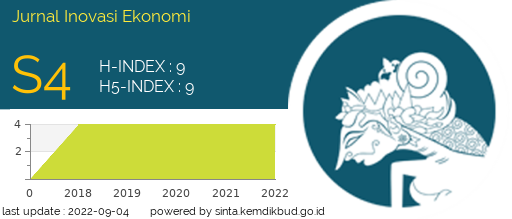Non-cash transactions and the money supply
DOI:
https://doi.org/10.22219/jiko.v8i02.23388Keywords:
non-cash, money supply, IndonesiaAbstract
This study examines the impact of non-cash transactions and electronic money (emoney) on the amount of money in circulation (M1) in Indonesia. Utilizing a
quantitative approach and an associative research design, the analysis draws on
secondary data from monthly time series publications by Bank Indonesia and the
Central Statistics Agency, spanning from 2019 to 2021. The independent variables
include the nominal values of debit card transactions (X1), credit card transactions
(X2), and e-money transactions (X3), all measured in billions of rupiah. The regression
results reveal no immediate linear effect of debit card transactions on the money
supply, while credit card transactions show a slight negative impact. In contrast, emoney transactions exhibit a significant positive relationship with the money supply,
indicating their substantial role in expanding monetary aggregates. These findings
offer insights into the interplay between different transaction types and their influence
on the money supply, providing a basis for policymakers and financial analysts to
develop strategies for managing and regulating monetary dynamics effectively.
Further research is recommended to explore the mechanisms driving these
relationships and their broader implications for monetary policy and financial stability.
Downloads
Downloads
Published
Issue
Section
License
Copyright (c) 2023 Shinta Ainur Rahmadani, Aprika Wanti Pratama, Nurma Yunita, Maya Panorama

This work is licensed under a Creative Commons Attribution-ShareAlike 4.0 International License.








